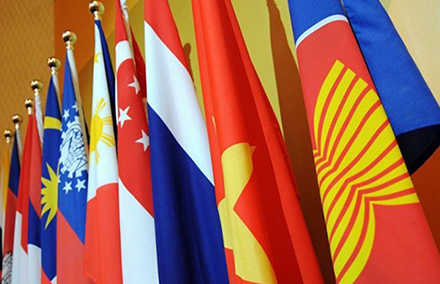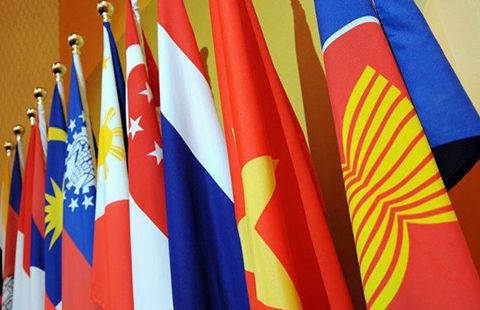
Can the dream of a people-centred ASEAN be achieved when human rights is being left out from the ASEAN narrative?
During November’s ASEAN Summit in Malaysia, which saw regional and world leaders converge on Kuala Lumpur, the organisation pushed forward in its vision for greater integration.
This included the launch of its new blueprint for the future, ASEAN 2025. If the directions on the road map are to be believed, member countries are ‘forging ahead together’ in the areas of politics and security, economics, and society and culture.
As part of this, during the 27th summit trade investments were negotiated, diplomatic relations were strengthened, and human rights conventions, such as the ASEAN Convention Against Trafficking In Persons Especially Women and Children (ACTIP), were signed unanimously.
The latter is a milestone for ASEAN, as it is plagued by some of the worst human trafficking issues in this region. In fact, a lot of ASEAN member states were placed at the bottom tier in the 2015 US Trafficking in Persons Report.
Less than three kilometres away, another forum was being held concurrently – the ASEAN Peoples’ Forum (APF). Attendees were not invited nor even engaged by ASEAN leaders, and the mood inside the hall was gloomy.
It was hardly surprising; as noted in one APF press conference, ASEAN leaders have hardly shown much interest in the region’s civil society movements or issues in the past.
”What does this really mean for the peoples of ASEAN?” asked APF chair Jerald Joseph. “Governments need to engage meaningfully with the civil society and to uphold its vision of a ‘people-centred’ ASEAN Community.”
The question is: to what lengths have the governments of ASEAN done so?
In the summit’s closing address, Malaysia Prime Minister Najib Razak promised to build an ASEAN that “is resilient, peaceful, secure and responsive to the needs of our peoples and the common good,” and is “founded on fundamental freedoms and social justice.”
Perhaps he and the other big wigs meant it. After all, this year’s summit even honoured key civil society players through the ASEAN Peoples’ Award – meant to recognise contributions towards “the creation of a united, prosperous and caring ASEAN Community.”
Incongruously, the summit made zero mention of ongoing regional human rights issues. Instead, the usual economic and political-security issues, such as the South China Sea dispute, the TPP, the ASEAN Economic Community and terrorism threats, dominated meetings.
While human rights issues took a backseat during the ASEAN Summit, it was the APF who highlighted the plight of the Rohingya and trans-boundary haze pollution as ASEAN priorities.
ASEAN has generally shied away from discussing any domestic issues on the regional level mostly due to the Achilles heel policy within its charter: the principle of non-interference. For decades, this has helped ASEAN to forge stronger ties, and allowed it to avoid political tension.
But it has also fuelled and preserved authoritarian governments and intensified human rights abuses in Southeast Asia. Countries like Cambodia, Thailand, Malaysia, Vietnam, Laos and many more have various human rights issues, from civil liberties to economic injustice.
For instance, many migrant labourers in the ASEAN region are being exploited, and according to a report by the International Labour Organisation (ILO), one-in-six workers in the Thai fishing industry are virtually modern slaves. Meanwhile a report by Verité exposed shocking working conditions among migrant workers in Malaysia’s electronics industry.
These are just the tip of the iceberg.
Many have dismissed the formation of the ASEAN Inter-Governmental Commission on Human Rights as a rhetorical front. Until today, it has yet to resolve any human rights abuses in the region for the simple fact that it has no protection mandate to address human rights issues in specific countries.
Hence, it has left many unconvinced, wondering if ASEAN is truly serious in addressing the human rights challenges that are faced by its population.
Outside the pomp of the 27th ASEAN summit’s closing ceremony, Malaysia handed the chairmanship to Laos; a country that is infamous for suppressing the voices of human rights activists and which has decided to bar any civil society from organising next year’s ASEAN Civil Society gathering.
“We have decided to hold next year’s APF in Timor Leste,” said Jerald Joseph. Timor Leste, a nation that has yet to be included in ASEAN, ranked higher than Laos in the UNDP’s human development index in 2014.
ASEAN may have leaped forward with its promise for an ASEAN Economic Community. But without an empowered Southeast Asian community, ASEAN is merely a hollow organisation with an elitist membership where important business is discussed behind closed doors.
As for the rest of us, life goes on as usual as if none of the regional and world leaders had ever visited Kuala Lumpur.
Nor Arlene Tan is the Producer and Host of DurianAsean.com, an online radio station that focuses on Southeast Asian matters. She has been involved in various research and civil engagements in ASEAN.
 Facebook
Facebook  Twitter
Twitter  Soundcloud
Soundcloud  Youtube
Youtube  Rss
Rss 